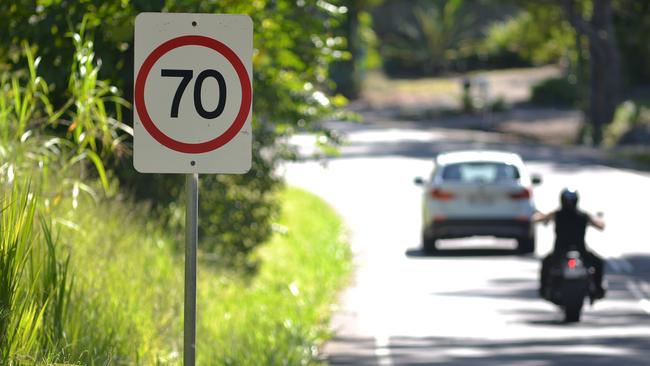RACV wants speed-limiting devices in leadfoot drivers’ cars
Drivers who frequently speed and flout the law should have devices, similar to alcohol interlocks, installed in their cars to force them to slow down, the state’s peak automotive body says.
Leadfoot drivers should have speed limiters put on their cars in a bid to reduce the road toll, the RACV says.
Victoria’s peak motoring body has called for those who repeatedly flout speed limits to be treated like repeat drink drivers and slowed down with technology.
In a submission to the state government’s road toll inquiry, the RACV has also called for a decrease in fines for low-level speeding and an increase in demerit points; the increased use of point-to-point speed cameras; and more funding for regional roads to fix what it says is a $1.2 billion backlog.

The speed-limiting technology could use GPS technology to slow vehicles and work in partnership with behaviour-change programs.
RACV senior manager of transport, planning and infrastructure Peter Kartsidimas said speed limits should also be reviewed on country roads.
“RACV estimates there are over 180,000km of regional roads with 100kmh speed limits in Victoria,” he said.
“We have estimated that upgrading these roads to a minimum three-star safety standard would likely take around 1000 years at the current rate of funding. Even if funding were to be doubled, many thousands of people will have lost their lives due to road trauma in Victoria in that time, which is unacceptable.”
It comes amid calls from medical professionals to provide more data on the role of alcohol and drugs in crashes.
MORE NEWS
MAN SHIELDS WIFE FROM SHOOTER IN SUNBURY
HOW CRIPPLING TAX MAY FORCE SALE OF ICONIC VENUE
The Royal Australasian College of Surgeons has called for mandatory blood testing on all people who present to hospital after a crash.
National trauma committee chair Dr John Crozier said there were still far too many alcohol-related accidents.
“We need to use these tragedies to pause and reflect,” Dr Crozier said. “Effective detection and enforcement, with the relevant penalties, are essential parts of preventing alcohol-related crashes.”
